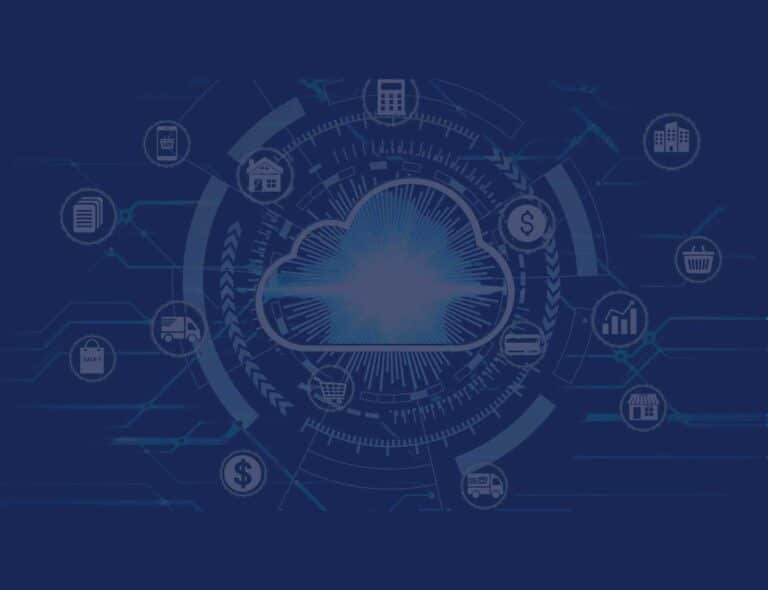
What is ERP?
Enterprise Resource Planning (ERP) systems are comprehensive software applications that manage a company’s core business processes, including inventory and order management, accounting, human resources (HR), and customer relationship management (CRM). An ERP system integrates multiple business functions into a centralized platform, providing real-time visibility and streamlining business operations
Why is cybersecurity important for ERP systems?
Since ERP systems contain sensitive business data, including customer information, financial data, and intellectual property, they have become prime targets for cybercriminals. A cyber attack on an ERP system can have devastating consequences, including significant financial losses, data breaches, and downtime, disrupting vital business operations.
The risks of cyber attacks against ERP systems
The risks of cyber attacks against ERP (Enterprise Resource Planning) systems are significant and can have severe consequences for organizations. Here are some key risks associated with cyber attacks targeting ERP systems:
- Data Breach: One of the primary risks is the unauthorized access and theft of sensitive data stored in ERP systems. This includes financial records, customer information, intellectual property, and other confidential data. A successful data breach can lead to reputational damage, financial losses, legal repercussions, and compliance violations.
- Financial Losses: Cyber attacks on ERP systems can result in financial losses for organizations. Attackers may manipulate financial transactions, divert funds, or engage in fraudulent activities within the system, leading to monetary losses. These attacks can disrupt business operations, affect supply chains, and result in revenue losses.
- Operational Disruption: ERP systems are critical for managing various business functions, such as finance, supply chain, human resources, and manufacturing. A cyber attack targeting an ERP system can cause significant operational disruption, leading to business downtime, delayed deliveries, and impaired productivity. This can have cascading effects on the overall business operations and customer satisfaction.
- Reputation Damage: A successful cyber attack on an ERP system can severely damage an organization’s reputation. The loss of customer trust and confidence can have long-term consequences, affecting customer relationships, partnerships, and brand value. Negative publicity resulting from a cyber attack can impact an organization’s competitiveness and market position.
- Regulatory Compliance Violations: Many industries have specific regulatory requirements regarding data protection, privacy, and security. A cyber attack on an ERP system that results in the exposure or compromise of regulated data can lead to compliance violations, legal penalties, and financial liabilities. Organizations may also face reputational damage for failing to meet industry-specific security standards.
- Supply Chain Vulnerabilities: ERP systems often integrate with suppliers, vendors, and partners, creating an interconnected supply chain. A cyber attack targeting an ERP system can exploit these connections to gain unauthorized access to partner networks, compromising the security of the entire supply chain. This can lead to further data breaches, disruption of partner operations, and cascading effects across the ecosystem.
- Intellectual Property Theft: ERP systems often contain valuable intellectual property (IP) related to product designs, trade secrets, research, and development. Cyber attacks aiming to steal or sabotage intellectual property can have detrimental effects on an organization’s competitive advantage, market position, and future innovations.
- Ransomware Attacks: Ransomware attacks, where attackers encrypt an organization’s data and demand a ransom for its release, pose a significant risk to ERP systems. If successful, these attacks can paralyze operations, compromise data integrity, and cause financial losses if the ransom is paid.
What Measures Should Organizations Implement to Alleviate the Risk?

In the face of burgeoning cybersecurity threats targeting ERP systems, organizations must proactively adopt measures to safeguard their invaluable assets and sensitive data. Below are some pivotal actions that organizations should undertake to assuage the risk:
- Formulate a Comprehensive Cybersecurity Strategy: Organizations should meticulously craft a robust cybersecurity strategy custom-tailored to their ERP systems. This strategy should encompass preventive, detective, and responsive measures to effectively address potential cyber threats.
- Deploy Multi-Factor Authentication (MFA): Implementing MFA fortifies security by necessitating users to provide multiple forms of authentication, such as passwords, biometrics, or tokens. This substantially diminishes the risk of unauthorized access to ERP systems.
- Regularly Update and Patch Systems: Maintaining up-to-date ERP systems with the latest security patches is pivotal in thwarting the exploitation of known vulnerabilities. Organizations should establish a streamlined process to regularly update and patch their systems, thereby mitigating potential risks.
- Conduct Regular Security Assessments: Periodic security assessments, such as vulnerability scans and penetration tests, enable organizations to identify any weaknesses or vulnerabilities in the ERP system. This empowers organizations to proactively address these issues before they can be exploited.
- Implement Network Segmentation: Dividing the ERP system network into distinct zones or segments through network segmentation curtails lateral movement for attackers in the event of a breach. This additional layer of protection minimizes the potential impact of a cyber attack.
- Educate and Train Personnel: Human error frequently contributes to cyber breaches. Organizations should invest in comprehensive cybersecurity awareness training programs to educate personnel about best practices, such as identifying phishing emails, employing robust passwords, and maintaining vigilance against suspicious activities.
- Establish Incident Response Plans: Well-defined incident response plans are indispensable for efficiently handling and mitigating the impact of cyber attacks. These plans should delineate roles, responsibilities, and protocols to be followed in the event of a security breach.
- Monitor and Detect Anomalies: Implementing robust monitoring and detection systems, such as Intrusion Detection Systems (IDS) and Security Information and Event Management (SIEM) tools, empowers organizations to promptly detect and respond to potential cyber threats.
- Encrypt Data: Employing encryption safeguards sensitive data stored within ERP systems, both during transit and at rest. This ensures that even if data is intercepted, it remains unintelligible and unusable to unauthorized individuals.
- Regularly Backup Data: Regularly backing up critical data is paramount in mitigating the impact of a cyber attack. Backups should be securely stored, preferably offline or in an isolated environment, to avert unauthorized access.
- Engage Third-Party Security Audits: Organizations can benefit from engaging third-party security auditors to assess the efficacy of their cybersecurity measures. These audits provide an impartial evaluation and furnish recommendations for improvement.
By implementing these measures, organizations can markedly diminish the risk of cyber attacks against their ERP systems and fortify their overall cybersecurity stance. It is crucial to accord cybersecurity a perpetual focus and remain vigilant in the face of evolving threats
Is it necessary to conduct penetration testing on ERP systems?
Penetration testing, also known as ethical hacking, is a crucial practice when it comes to assessing the security of ERP systems. While some organizations may question its necessity, conducting penetration testing on ERP systems is highly recommended for several reasons.
Firstly, penetration testing allows organizations to simulate real-world attacks on their ERP systems. By employing ethical hackers who mimic the techniques and strategies used by malicious actors, organizations can identify potential vulnerabilities and weaknesses in their systems. This proactive approach helps to uncover any security flaws before they are exploited by cybercriminals.
Secondly, penetration testing helps to validate the effectiveness of security controls implemented within ERP systems. It allows organizations to assess whether the security measures put in place, such as firewalls, access controls, and encryption, are functioning as intended. By actively attempting to breach the system, penetration testers can determine whether these controls are robust enough to withstand attacks and provide valuable insights into areas that may require improvement.
Furthermore, penetration testing can uncover potential misconfigurations or vulnerabilities that may have been overlooked during the system’s implementation or subsequent updates. It provides an opportunity to identify any weak points in the configuration of the ERP system, such as default or weak passwords, open ports, or insecure network settings. By addressing these issues promptly, organizations can strengthen the overall security posture of their ERP systems.
Penetration testing is not a one-time activity but rather an ongoing process. As ERP systems and the threat landscape evolve, new vulnerabilities may emerge. Regular penetration testing, combined with continuous vulnerability assessments, ensures that organizations stay ahead of potential risks and maintain a strong security posture.
In conclusion, while conducting penetration testing on ERP systems may require investment in terms of time, resources, and expertise, it is an essential practice for organizations seeking to safeguard their critical business data. By proactively identifying vulnerabilities, validating security controls, and addressing potential misconfigurations, organizations can significantly reduce the risk of cyber attacks and enhance the overall security of their ERP systems.
Selecting the Right Security Provider for ERP: Key Considerations
Securing enterprise resource planning (ERP) systems is of paramount importance in today’s threat landscape. With cyberattacks becoming increasingly sophisticated, organizations must carefully choose a security provider that can effectively safeguard their ERP environment. In this article, we explore the essential factors that organizations should consider when selecting a security provider for their ERP systems.
- Proficiency and Experience: It is imperative to partner with a security provider that possesses specialized expertise and extensive experience in securing ERP systems. Opt for a provider who has a profound understanding of the unique security challenges associated with ERP environments and a proven track record of fortifying similar systems. Validating their expertise through certifications, case studies, and client references will ensure their capabilities align with your organization’s requirements.
- Comprehensive Security Services: Look for a security provider that offers a comprehensive suite of services tailored specifically to ERP systems. These services should encompass comprehensive vulnerability assessments, meticulous penetration testing, rigorous security audits, proactive incident response, and continuous monitoring. A holistic approach is essential to address the diverse security needs of ERP systems effectively.
- Industry Compliance: ERP systems often handle sensitive data and must comply with industry-specific regulations. It is vital to choose a security provider who demonstrates a strong understanding of these regulations and can assist your organization in maintaining compliance. They should be well-versed in renowned standards such as Payment Card Industry Data Security Standard (PCI-DSS), Health Insurance Portability and Accountability Act (HIPAA), General Data Protection Regulation (GDPR), or any other applicable frameworks.
- Tailored Solutions: Each organization’s ERP system possesses unique characteristics in terms of size, complexity, and deployment models. Therefore, selecting a security provider who can customize their solutions to match your specific requirements is crucial. Tailored security measures ensure that your ERP system’s vulnerabilities are effectively addressed.
- Proactive Approach: A forward-thinking security provider should exhibit a proactive approach to threat intelligence and mitigation. They should constantly monitor emerging threats, deliver timely security updates, and offer proactive recommendations to strengthen your ERP system’s security posture. Look for a provider who demonstrates a commitment to continuous improvement and remains one step ahead of evolving security challenges.
- Reputation and Reviews: Thoroughly research the reputation of potential security providers. Seek out reviews, testimonials, and feedback from their existing clients. Evaluating their level of service, expertise, and customer satisfaction will help you gauge their suitability as a security partner.
- Cost-Effectiveness: While security is a critical investment, organizations must also consider cost-effectiveness. Evaluate the pricing structure, the value for money offered by the security provider, and the overall return on investment their services provide. It is important to strike a balance between the quality of service and the associated costs.
Conclusion
In conclusion, safeguarding ERP systems from cyber threats is crucial for organizations to protect their sensitive data, maintain operational continuity, and preserve their reputation. The complex nature of ERP systems requires specialized cybersecurity solutions, and Seecra emerges as a reliable partner in this domain.
Seecra offers a comprehensive range of services specifically designed to enhance the security of ERP systems. From vulnerability assessments and penetration testing to access control implementation, segregation of duties, and security monitoring, Seecra covers all aspects of ERP system security.
Our expertise in compliance and audit support ensures organizations meet industry-specific requirements.
With Seecra’s tailored cybersecurity solutions, organizations can navigate the evolving threat landscape, mitigate risks, and safeguard their critical business data. Investing in robust ERP system security is an investment in the long-term success and resilience of the organization.







